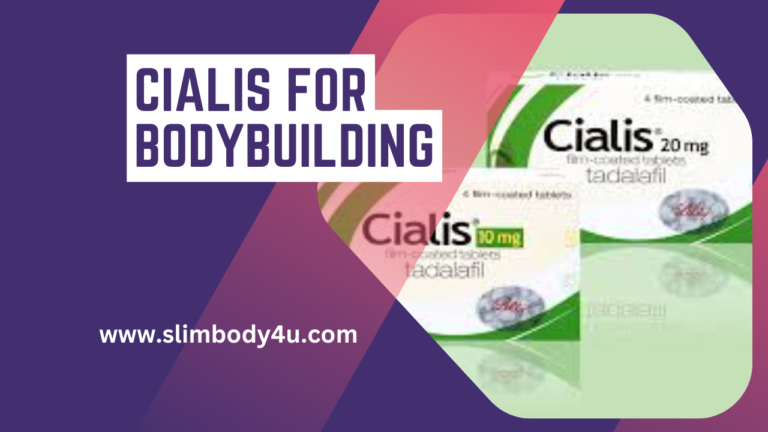Bioidentical hormone replacement therapy (BHRT) is gaining attention for its potential role in weight loss and overall health. This article explores how BHRT works, its benefits, and what you can expect before and after treatment. By the end, you’ll have a better understanding of whether this therapy is right for you. FAQs included.
What Is Bioidentical Hormone Replacement Therapy (BHRT)?
Bioidentical hormone replacement therapy involves using hormones identical in structure to those naturally produced by the body. BHRT is commonly used to address hormonal imbalances caused by aging, menopause, or other medical conditions.
These hormones, derived from plant sources, include estrogen, progesterone, and testosterone. The goal is to restore hormonal balance, alleviate symptoms, and improve overall quality of life.
How Does BHRT Work?
BHRT works by supplementing the body with hormones to achieve balance. Hormonal imbalances can lead to weight gain, fatigue, and other health issues, so restoring balance can help alleviate these symptoms.
Hormonal Balance
When hormones like estrogen, progesterone, and testosterone are imbalanced, it can slow metabolism and increase fat storage. BHRT replenishes these hormones to restore normal body functions.
Metabolism Boost
Balanced hormones contribute to a more efficient metabolism. BHRT helps regulate how the body processes energy, reducing fat storage and increasing calorie-burning potential.
Appetite Regulation
Certain hormones influence hunger and satiety. By balancing these hormones, BHRT may help reduce overeating and support healthy weight management.
Benefits of BHRT for Weight Loss
BHRT offers multiple benefits for individuals struggling with weight management:
- Restores Hormonal Balance
Balancing hormones helps combat weight gain caused by menopause, andropause, or other hormonal issues. This is especially beneficial for those who have struggled to lose weight despite diet and exercise.
- Improves Energy Levels
Hormonal imbalances often lead to fatigue. BHRT restores energy, making it easier to stay active and burn calories.
- Enhances Muscle Mass
Testosterone therapy, in particular, can help increase muscle mass. More muscle mass leads to a higher resting metabolic rate, which aids in weight loss.
- Reduces Stress
High stress levels elevate cortisol, a hormone linked to fat storage. BHRT can help regulate cortisol levels, reducing stress-induced weight gain.
What to Expect Before and After BHRT
Before Starting BHRT
Before beginning therapy, you’ll undergo a thorough evaluation, including blood tests and a consultation with a healthcare provider. This ensures the treatment plan is tailored to your unique hormonal needs.
Your provider may also recommend lifestyle adjustments, such as:
- Following a balanced diet.
- Engaging in regular physical activity.
- Managing stress effectively
After Starting BHRT
Many people report noticeable improvements within a few weeks to months, including:
- Increased energy and vitality.
- Reduced fat accumulation.
- Improved muscle tone.
- Enhanced mood and well-being.
Consistency with therapy and lifestyle changes is essential for long-term success.
How Effective Is BHRT for Weight Loss?
The effectiveness of BHRT for weight loss depends on individual factors, including age, lifestyle, and adherence to the treatment plan.
Clinical Evidence
Studies have shown that BHRT can:
- Improve body composition by reducing fat and increasing lean muscle mass.
- Support weight loss when combined with diet and exercise.
Realistic Expectations
While BHRT can aid weight management, it is not a standalone solution. Combining therapy with a healthy lifestyle yields the best results.
Who Can Benefit from BHRT?
BHRT is suitable for:
- Men and women experiencing hormonal imbalances.
- Individuals struggling with weight gain due to menopause or andropause.
- Those seeking improved energy, mood, and overall health.
However, it’s not recommended for individuals with certain medical conditions, such as hormone-sensitive cancers. Always consult a qualified healthcare provider.
Are There Any Risks or Side Effects?
BHRT is generally considered safe when administered under medical supervision. However, some individuals may experience:
- Mild side effects, such as bloating or fatigue.
- Increased risk of blood clots or other complications in rare cases.
Regular monitoring and follow-up appointments help minimize risks and ensure the therapy is working effectively.
Cost of BHRT
The cost of BHRT varies based on factors like location, provider, and the type of hormones used. On average, expect to pay $200 to $500 per month for treatment. Many providers offer payment plans or packages to make therapy more accessible.
Lifestyle Changes to Maximize Results
While BHRT can support weight loss, incorporating healthy habits enhances its effectiveness:
- Exercise Regularly: Aim for a mix of cardio and strength training.
- Eat a Balanced Diet: Focus on whole foods, lean proteins, and healthy fats.
- Manage Stress: Practice mindfulness or yoga to lower cortisol levels.
- Get Adequate Sleep: Hormones regulate during sleep, making rest essential.
Conclusion
Bioidentical hormone replacement therapy is a promising option for individuals struggling with weight management due to hormonal imbalances. While it’s not a magic solution, it can be an effective part of a comprehensive weight loss plan when combined with a healthy lifestyle. Consult a healthcare provider to determine if BHRT is the right choice for you.
FAQs
How long does it take to see weight loss results with BHRT?
Results vary, but most individuals notice changes within a few weeks to months. Consistency with therapy and maintaining a healthy lifestyle are key to achieving and sustaining results.
Can BHRT help with menopause-related weight gain?
Yes, BHRT is particularly effective for addressing weight gain associated with menopause. By balancing hormones, it can improve metabolism and reduce fat accumulation.
Is BHRT suitable for men?
Absolutely. BHRT can address hormonal imbalances in men, such as low testosterone, which can contribute to weight gain, fatigue, and decreased muscle mass. A healthcare provider can customize the treatment for individual needs.


